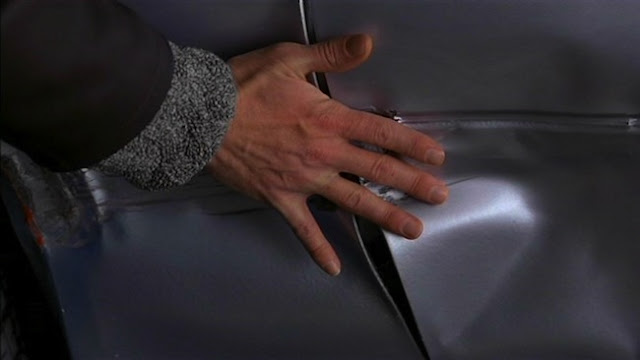JONATHAN GOLD WAS 57
“He’s not just a writer — he was a conduit for the stories of Los Angeles. I just see the city through his eyes and across the table from him.” LATimes
“I am fond of driving long distances on surface streets,” he wrote in that 1990 essay, “coursing down the 40-mile length of Rosemead Boulevard from Pasadena until it disappears into a traffic circle deep in Long Beach, cruising down Slauson from the Marina to Whittier, or up the old Sierra Highway toward Lancaster, passing endless low stucco buildings and hundreds of tiny malls, mom ’n’ pop truck stops and original-issue diners, 24-hour steakhouses and blinking neon drive-ins, seedy cantinas waiting for a fistfight to break out, ethnic enclaves strung along the boulevards like colorful beads on taut skeins of thread.” Jonathan Gold, in Robin Abcarian's LATimes appreciation
“Affably unpretentious but always grandly informed, Jonathan Gold opines and divines his way across a complex city. All critics should know their beat so well, and love it truly. Plus, tacos. Always room for more tacos.” Ray Pride
"His prose was apparently as agonizing to produce as it was pleasurable to read. For a time he saw a therapist for writer’s block until it was mutually agreed that somebody as prolific as Mr. Gold could not be described as blocked. Editors were driven to despair by his habit of taking deadlines seriously only once they were safely in the past. Mr. Powers, who edited him at LA Weekly, called him “the Usain Bolt of being slow.” Pete Wells, the New York Times
Jonathan Gold's 101 Best Restaurants, October 23, 2017
Some pretty good food movies. https://t.co/KmD1V90jCr— jonathan gold (@thejgold) May 6, 2018
"If you gaze long into Nothingness, or at least into the San Gabriel Sichuan restaurant of that name, the Nothingness that stares back at you is likely to include steamed whole fish, braised lamb with jelly noodle, and pig feet with hot pepper. The steam rising from hot pots may suggest an infinite void, but only for that moment before the vivid red of the roiling broth becomes visible through the mist. Also, I imagine the empty world does not smell quite so strongly of garlic and toasted chiles. Why is there something rather than nothingness? Because the presumption of nonexistence does not allow for the possibility of live crawfish steamed in chile sauce, while Nothingness the restaurant does. Does existence precede essence? I haven't read a lot of philosophy since college, but I maintain that the snap of the shell, the softness of the flesh, indicate that it probably does." Jonathan Gold, 2017
"Locol serves neither the coffee-roasted carrots nor the asparagus with buttermilk snow Patterson made when he ran the kitchen at Coi nor the blackjack quesadillas at Kogi and Chubby Pork Belly bowls for which Choi is known at his Chinatown restaurant Chego. The food is less an experiment in culinary creativity than it is an attempt to fashion sustainable, lower-fat, affordable versions of dishes already popular in the area it serves: burgers, pizza, chili and salad. The restaurant is staffed by people who live in the neighborhood, very few of whom worked in food service before Locol hired them. Locol is less a replacement for a fast-food restaurant than a better version of it, a place with a funky but high-design vibe, a bowl of rice and greens for the price of a bag of Cheetos. Choi is fond of calling Locol a revolution. “It’s cool,’’ Wells messaged me Thursday. “But I tell you, if they want to start a revolution, they’ve got to do better than what they're serving in Oakland.’’ So should Locol fall in the same category as Homeboy Bakery or Venice’s Bread and Roses Café, or should it be criticized because it fails to come up to the standards of Kogi or Coi? It’s a difficult question. In my opinion, Wells may not have been wrong, but he was ungenerous.Jonathan Gold, the ambassador of Los Angeles and a man who revolutionized dining, has died.— Dylan Byers (@DylanByers) July 22, 2018
Bourdain and Gold in the same year. One went global to celebrate the local. One went local to celebrate the global. Heroes both. https://t.co/3Vdg9hOON5
"Someday, if he'll allow me, I'd like to take Mr. Wells to Watts." Jonathan Gold, 2017
No! This is gutting news. RIP Jonathan Gold. A huge loss to LA, journalism, the food world & all who knew him. Condolences to Laurie & the rest of his family. https://t.co/AxEqyrUBq4— Joy Press (@Joypress) July 22, 2018
Some truth from Jonathan Gold in @CityOfGoldDoc: pic.twitter.com/ZsNrljWlrs— Carolina A. Miranda (@cmonstah) July 22, 2018

